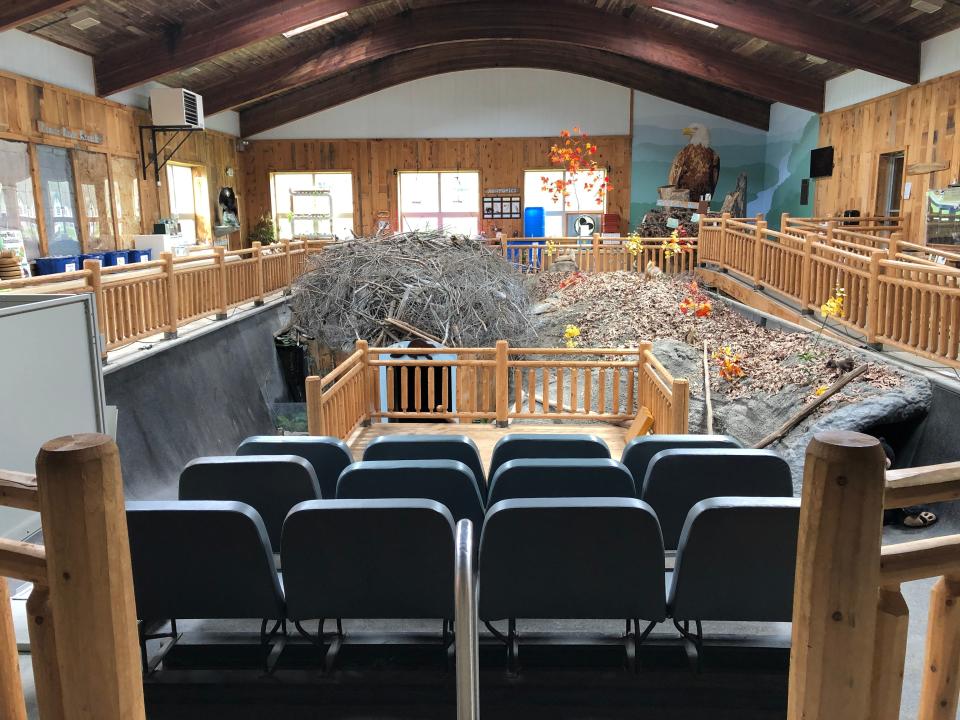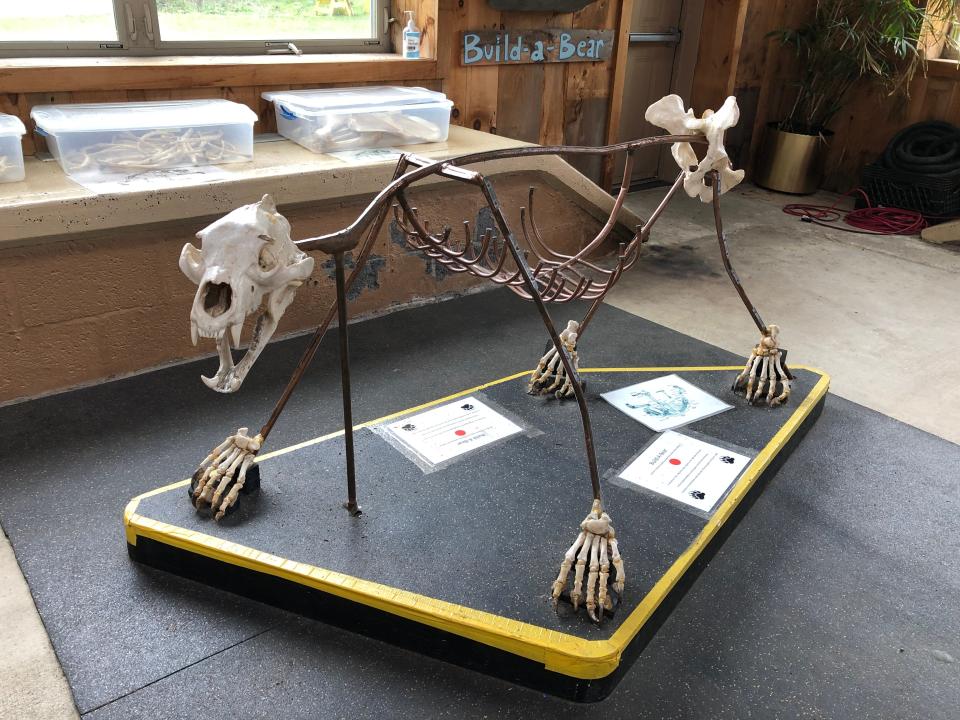PEEC celebrating Earth Day, 50th anniversary with Saturday festival
The story of PEEC is intertwined with the story of the Poconos: After the Tocks Island Dam project was shelved, a honeymoon resort that hadn’t been demolished was turned into the Pocono Environmental Education Center — and it’s been evolving along with the region ever since.
PEEC (538 Emery Road, Dingmans Ferry) is celebrating its 50th anniversary this year, with one of the main events being the Earth Day Festival from 11 a.m. to 4 p.m. Saturday.
The festival will showcase a “nice mix of really the best of what PEEC has to offer,” and will be a good way for people who may be unfamiliar with PEEC or apprehensive about outdoor activities to get introduced to what the facility offers, said Derek Scott, director of operations.
For $5 a car, visitors can go on guided hikes, take canoeing and kayaking lessons, participate in arts and crafts, pick up goods from local vendors and tour the EcoZone, a hands-on learning space in PEEC’s main building.
Of interest:Here are ways to celebrate Earth Day in the Poconos

That sort of weekend community involvement has grown during Executive Director Jeff Rosalsky’s time with PEEC. He first got involved with the center more than 20 years ago as a volunteer.
PEEC was “originally set up in ’72 to bring kids from urban areas out here for overnight environmental education programs,” he said. Those trips still happen, but as the population has grown in Monroe and Pike counties, programs for local residents have grown, too.
In addition to its summer camp, the center has also added a six-week special needs residential camp, a gifted science camp and multi-day river trips, Rosalsky said.
The old Honeymoon Haven buildings weren’t prioritized for demolition when the federal government took over the property because they weren’t within the area that would have been flooded by the proposed reservoir, Rosalsky explained.
So when the Tocks Island Dam project failed, the buildings were still standing, and Keystone College used the site for field study, Scott said. “Most of the structures we see on the property are either the original structures, or we knocked them down and built on the original footprints.”
Keystone College partnered with the National Park Service to found PEEC in 1972, also incorporating principles of the New Jersey School of Conservation, an environmental education center over the river in Stokes State Forest, said Stephanie Sherman-Barr, director of education.
Visitors won’t find heart-shaped tubs here — but they will see a creatively repurposed swimming pool at the center of the EcoZone.
The pool — which PEEC only had as a remnant of the resort anyway — was shut down after it sprung a leak that would be expensive to repair. Two ideas combined for Rosalsky: A giant, walkable heart at the Franklin Institute in Philadelphia, and David Attenborough’s exploration of a beaver lodge via fiber optic camera in “The Life of Mammals.”
Secluded spots:I hiked 12 miles in the Poconos and New Jersey and hardly saw anyone
Of interestAdults only: The Poconos are benefitting from TikTok's obsession with themed hotel rooms
“In my head, those two things just kind of started converging, and I’m like, ‘Wait a second. What if we use the indoor pool, and we could actually walk into a beaver lodge, because no one gets to do that, and replicate that experience?’”
The pool houses a replica beaver lodge (water-free, so that guests can actually get inside) and a bat cave, complete with stalactites and stalagmites. Around the edge are various exhibits including a full-size bald eagle’s nest, a fossil pit and a magnetized bear skeleton that visitors can assemble on a metal frame.

Adapting to COVID-19 took creativity, too.
The center launched its PEEC Into the Classroom program, which provides virtual or on-site education in local schools. Field trips are picking up again, but PEEC is keeping the program, with an emphasis on winter to expand school outreach from three seasons to all four, Sherman-Barr said.
“Our focus now moving forward, and my personal thing, is I am very big with outreach and building connections to our local communities,” she said.
“I started right at the beginning of COVID. The last couple years have been very difficult for anybody like PEEC who relies on people being here,” said Joel Penkala, director of development. “Part of what we do is have the kids here. We rely on that.”
PEEC survived, but the pandemic “really made it clear to us that we need to look at endowment-level support that’s going to be there every year for us.”
Though it’s on land owned by the National Park Service, PEEC is a nonprofit and funds itself separately. It’s an education partner to the NPS — not part of it.
Penkala is aiming to secure $100,000 for that endowment fund this year, which would allow PEEC to start each year with some overhead costs covered.
“The impact that PEEC has had over the last 50 years on the community is pretty substantial, and we want to make sure that we’re around for the next 50,” Penkala said.
— Kathryne Rubright is a reporter covering the environment in northeast Pennsylvania, and is based at the Pocono Record. Reach her by emailing krubright@gannett.com.
This article originally appeared on Pocono Record: Pocono Environmental Education Center celebrates 50 years

